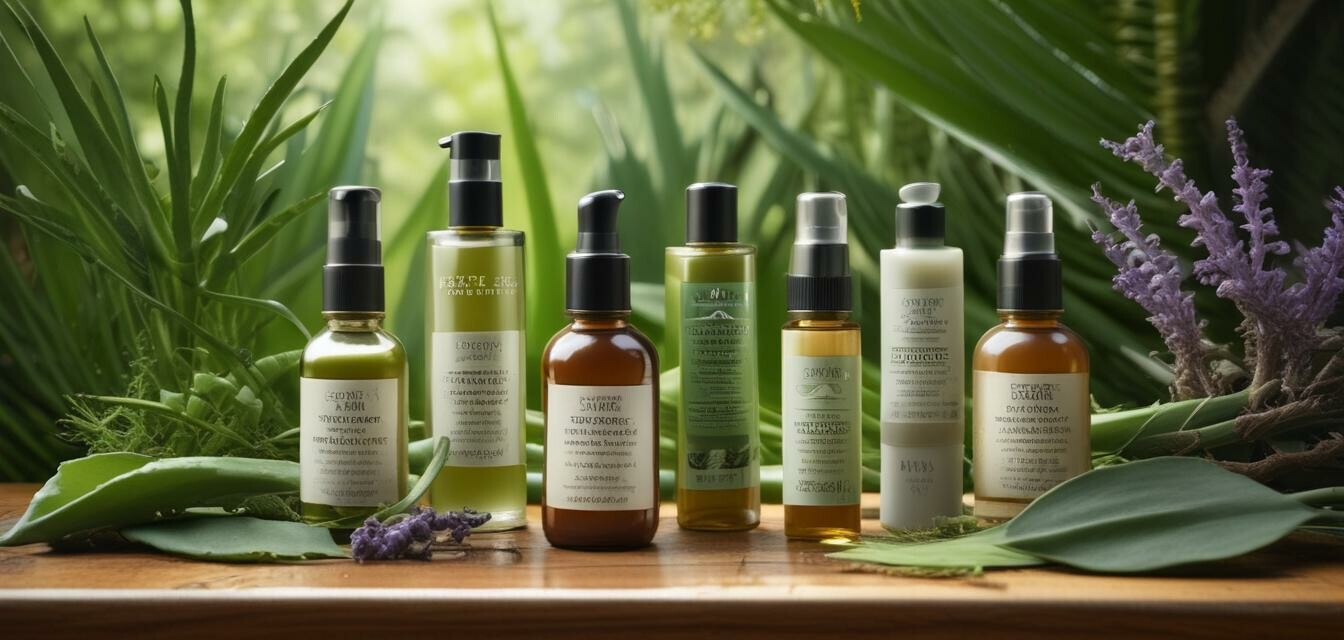
Navigating Organic Ingredients: What to Avoid
Key Takeaways
- Not all ingredients labeled as organic are safe.
- Common harmful ingredients to avoid include parabens, sulfates, and synthetic fragrances.
- Understanding labels and their meanings is crucial for making informed choices.
- Reading ingredient lists is essential for identifying harmful substances.
- Look for third-party certifications for true organic products.
When it comes to skincare, choosing products that claim to be organic can feel like a safe bet. However, not all ingredients labeled as organic are beneficial for your skin. This guide aims to arm you with knowledge about identifying harmful ingredients that may be hidden behind the "organic" label. Understanding these ingredients is key to ensuring safe choices for your skincare routine.
Common harmful ingredients in organic skincare
Although some ingredients are deemed "organic," they may still contain substances that can be harmful to your skin or overall health. Below, we list some common harmful ingredients to watch for:
| Ingredient | Why to Avoid | Common Alternatives |
|---|---|---|
| Parabens | Linked to hormonal disruptions. | Natural preservatives like rosemary extract. |
| Sulfates | Can strip natural oils from skin, causing irritation. | Gentle cleansers derived from coconut or palm. |
| Synthetic fragrances | Often contain allergens and can cause irritation. | Natural essential oils for scent. |
| Formaldehyde | Known carcinogen and irritant. | Plant-based preservatives. |
| Triclosan | Linked to hormone disruption and antibacterial resistance. | Tea tree oil or other natural antibacterial agents. |
Understanding ingredient labels
Being able to read and understand ingredient labels is essential for identifying harmful substances. Ingredients are listed in descending order by weight, meaning the first five ingredients typically make up the majority of the product. Pay close attention to:
- First five ingredients: Look for natural and recognizable ingredients.
- Certifications: Seek products certified organic by reputable organizations.
- Marketing terms: Be wary of terms like “natural” or “eco-friendly” that are not regulated.
What to look for instead
Having an understanding of harmful ingredients is only part of the equation. Knowing what to look for allows you to make positive choices for your skin:
- Natural oils: Such as jojoba or argan oil, are excellent for moisturizing.
- Botanical extracts: Ingredients like cucumber or chamomile soothe and nourish the skin.
- Shea butter: A great natural moisturizer that hydrates without irritating.
- Ceramides: Help maintain skin barrier and hydration.
Where to find reliable information
Finding reliable information about organic skincare ingredients can often be a challenge. Here are a few tips on where to look:
- Research reputable brands: Look for companies that focus on transparency and ingredient integrity.
- Consult skincare blogs: Check out resources like Glow Up Naturally for detailed information on buying guides.
- Visit dermatology websites: Reputable medical sources can provide insights on safe ingredients.
Conclusion
Choosing organic skincare products can be beneficial for your skin, but understanding which ingredients to avoid is crucial for ensuring your choices are safe. Always read labels carefully, be aware of marketing tactics, and prioritize products with natural, identifiable ingredients.
Pros
- Informed decision-making leads to safer skincare.
- Knowledge of ingredients helps avoid irritants and allergens.
- Choosing natural products supports eco-friendly practices.
Cons
- It can be overwhelming to understand all the ingredients.
- Some "organic" product claims may be misleading.
- Finding truly organic products requires diligent research.
More resources for your skincare journey
For more in-depth guidance, consider exploring other sections of our website:


